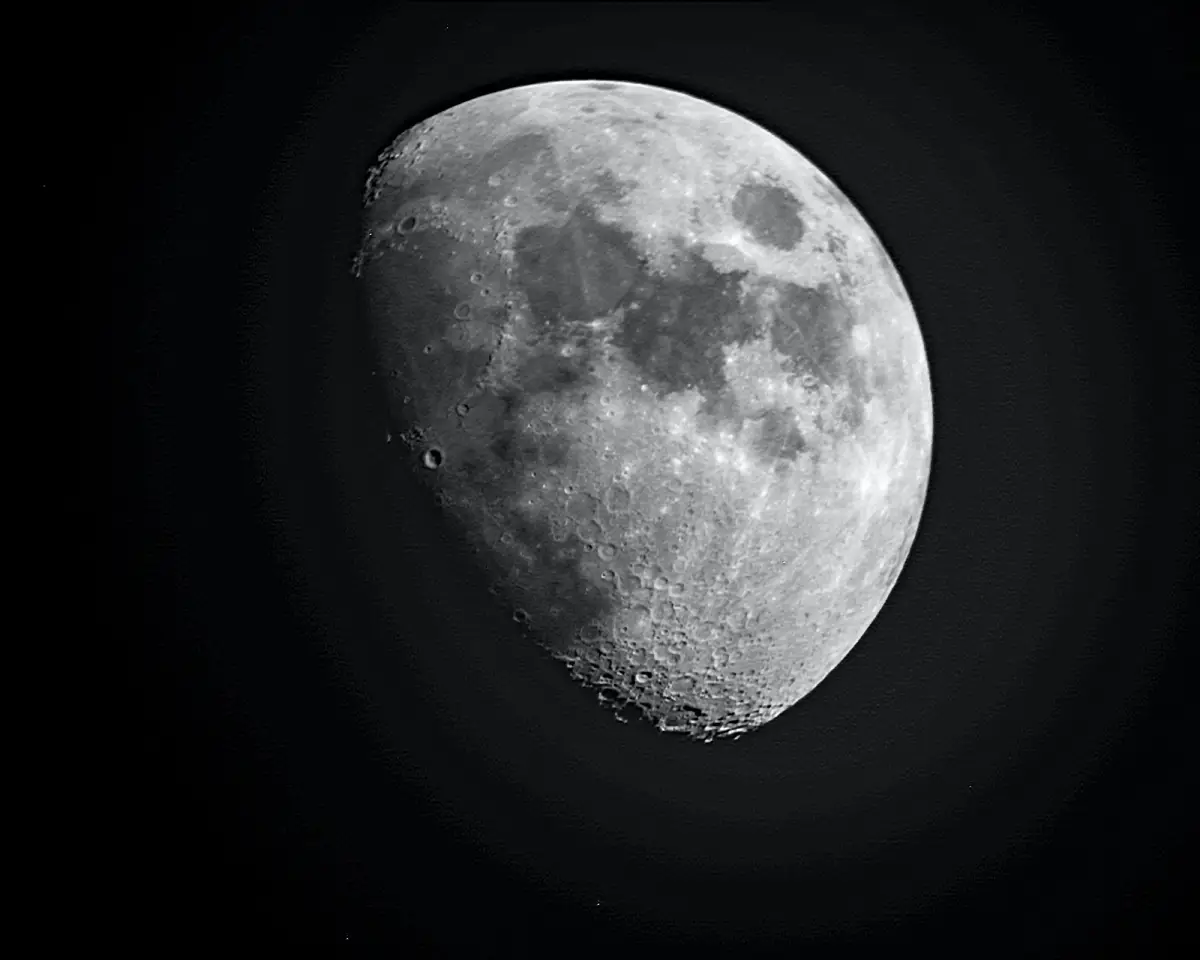An Astronomical Unit (AU) is the distance between...
the earth and the sun
Name one landform found on the moon. What causes it?
craters - impact scars
rays - ejected materials
maria - hardened lava
mountains - extinct volcanoes, ridges of craters, lunar tectonics
The apparent path that the sun follows through the stars as seen from Earth’s perspective is called ________________.
the ecliptic
What two factors cause the seasons?
Earth's motion around the sun (elliptical) and Earth's tilt on its axis.
What phase of the moon is shown?

What two elements make up the sun?
hydrogen & helium
The moon has a very thin atmosphere because it
A. is too hot
B. rotates too fast
C. has too little mass
D. has a large escape velocity
C. has too little mass
TRUE or FALSE: The sun is located far from the center of the Milky Way galaxy.
TRUE
Why do we have leap years?
Identify structures D and F
D - photosphere
F - corona
Severe solar storms that can disrupt telecommunications on Earth are called ___________.
A. coronas
B. solar winds
C. spicules
D. sunspots
B. solar winds
How many times does the moon rotate during one revolution around the earth?
BONUS: Why is this number significant?
once
BONUS - we never see the "dark side" of the moon
Which effect is not produced by tidal forces between the earth and the moon?
A. the earth’s spin slows
B. the moon’s orbit is drawn closer to the earth
C. the moon orbits faster
D. moonquakes occur
B. the moon’s orbit is drawn closer to the earth
If the moon is in the waxing crescent phase, which is sooner: a new moon, or a full moon?
full moon
Identify structures A, B, and C
A - core
B - radiative zone
C - convective zone
Which of the following statements about the sun’s electromagnetic energy is not correct?
A. radio waves appear red and UV waves appear indigo or violet
B. the visible spectrum contains only the waves that we can see
C. it forms a continuous spectrum from radio waves to gamma rays
D. about 93 % of the sun’s energy output is emitted as electromagnetic energy
A. radio waves appear red and UV waves appear indigo or violet
TRUE or FALSE: Lunar landscape is shaped by weathering and erosion.
FALSE
When during the phases of the moon can a solar eclipse happen? When can a lunar eclipse happen?
BONUS: Which is shorter?
solar - new moon
lunar - full moon
BONUS: solar eclipse is shorter
How do we know that the sun rotates?
we can observe sunspot "movement"
Astronomers believe that the structure E forms when
A. pairs of local magnetic disturbances appear on the sun’s surface
B. the sun ejects blobs of plasma, leaving cool holes
C. meteors strike the sun’s surface, creating dark holes
D. dark, hotter plasma rises to the surface from the interior
A. pairs of local magnetic disturbances appear on the sun’s surface
Intensely energized ionized particles that form the material of the sun make up ________.
plasma
What is MOST helpful for survival on the moon? What is LEAST helpful?
LEAST - matches
Describe the two types of motion of the sun, moon, and earth as they relate to each other and the galaxy.
the sun rotates and revolves around the Milky Way
the moon rotates and revolves around the Earth
the Earth rotates and revolves around the sun
29.53 days
Draw a diagram to represent a solar eclipse. Label the sun, moon, earth, and show the light / shadowed areas of each.
